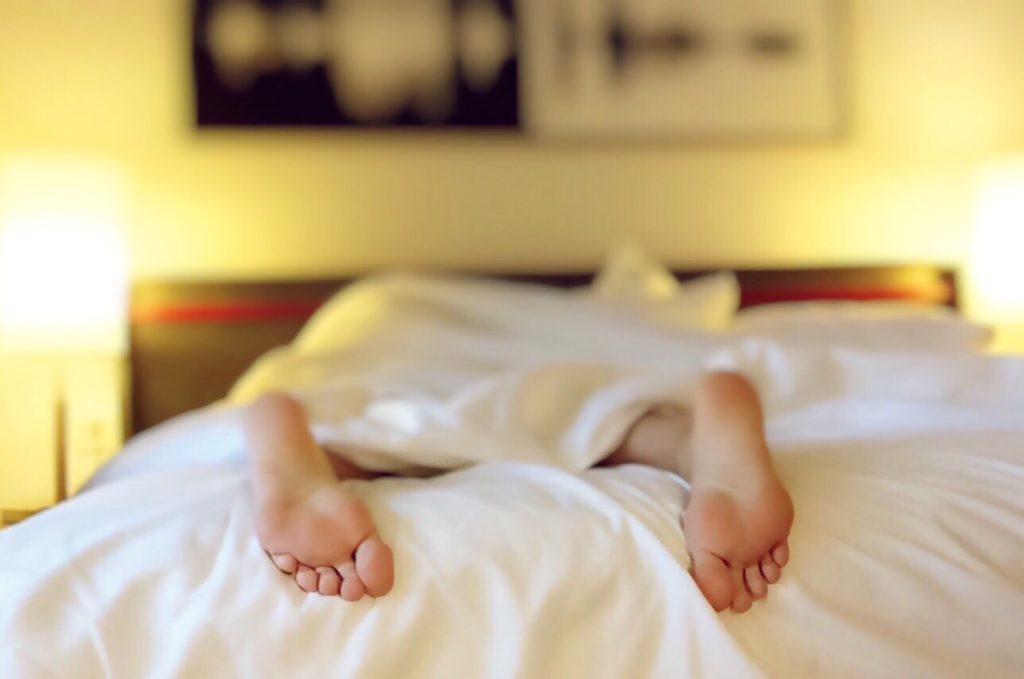Did you know that lack of sleep can make it difficult to lose weight?
Several major studies have shown that sleep, or lack of it, affects a number of processes in your body linked to weight management, including your ability to process glucose effectively.
If you’re doing all the right things, but still can’t seem to lose those extra kilos, it could be that you just need to sleep it off!
Find out how a good night’s sleep can make all the difference to your body and waistline.
Losing sleep, gaining weight
Do you lose sleep over your weight? It might be time to try losing weight over your sleep!
According to a major study published in the Journal of the American Medical Association, lack of sleep can reduce the production of the hormone GH – a hormone that helps prevent weight gain. GH plays an important role in controlling your proportions of fat and muscle. Producing less of this hormone increases your chances of being overweight.
Lack of sleep can also affect your production of the hormone leptin, which regulates your metabolism of carbohydrates. Leptin also signals to your body to tell it when it should feel full. When you have low levels of leptin, your body craves carbohydrates – regardless of the amount of calories you’ve consumed. This can easily lead to weight gain.
On the other hand, studies show that if you get high amounts of REM sleep (deep or slow-wave sleep), your evening cortisol levels are more likely to be balanced. The hormone cortisol also plays a role in regulating appetite. The more balanced your cortisol levels, the easier it is to control your appetite.
So the impact of sleep on these three hormones plays a critical role in preventing weight gain and supporting weight loss.
Lack of sleep and diabetes
Lack of sleep has also been shown to have effects similar to those of diabetes on some people.
One study showed that a sleep deficit of three to four hours for just one week can have adverse effects on your basic metabolic functions, including your ability to process and store carbohydrates, even if you’re young and healthy.
The study found that, without sufficient sleep, your ability to process glucose can be affected so significantly that your glucose levels can reach those associated with a pre-diabetic state.
It is suspected that that chronic sleep loss might hasten the onset, and increase the severity of, age-related ailments such as diabetes, hypertension, obesity, and memory loss.
Now here’s the rub
While inadequate sleep can cause weight gain, weight gain can also affect your sleep adversely, increasing your chances of developing a sleep disorder.
It’s a catch-22 situation; the best way out of which is to improve both your sleep quality and weight at the same time.
If you have difficulty sleeping, are overweight, or both, set a goal to lose 0.5-1kg per week, and practice these good pre-sleep habits.
- Cut back on caffeine – in your coffee, tea, and even chocolate. Some people feel wired after just one cup of coffee. Know your limits.
- Limit alcohol and don’t drink right before bed. While alcohol can promote drowsiness, it disrupts REM (deep) sleep.
- Regular daytime exercise can enhance your sleep, making it deeper and more restful. However, avoid exercising just before bed as it can keep you awake.
- Try drinking a glass of warm milk before you go to bed; it helps some people sleep more deeply.
- Have a relaxing bedtime routine. Stop doing anything that may contribute to stress at least an hour before bedtime – give your brain time to wind down. Avoid screens at least an hour before bed, as the light from technology can contribute to poor sleep quality.
- Don’t eat too close to bedtime.
- Don’t nap or sleep in too late, stick to regular sleeping hours.
- Keep a notepad near your bed. If you’re worried about something or find yourself thinking about the things you need to do the following day, jot them down so you can clear your mind until morning.
- Try not to obsess about not sleeping. The more you worry about it, the less you will sleep.
- If light is coming into the room, block it out or wear a lightweight sleep mask. If noise is keeping you awake, try ear plugs.
- Try a soothing bath or other relaxation rituals, including deep breathing, calming music, light stretching or progressive muscle relaxation, before you get into bed.
- If you often have trouble getting to sleep, you might consider seeking professional help.
References:
This article was compiled in consultation with Calorie King experts and in reference to the following sources:
Eve Van Cauter, PhD, Rachel Leproult, MS, Laurence Plat MD, ‘Age-Related Changes in Slow Wave Sleep and REM Sleep And Relationship With Growth Hormone and Cortisol Levels in Healthy Men,’ Journal of the American Medical Association, 2000: pp 861-868
Karine Spiegel, Rachel Leproult, Eve Van Cauter, ‘Impact of Sleep Debt on Metabolic and Endocrine Function,’ The Lancet, 1999, Volume 354,: pp 1435

